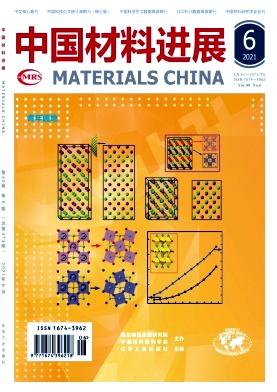In-Situ SEM and EBSD Analysis on Plastic Behavior of Laser Beam Welding Ti-6Al-4V Alloy [激光焊接Ti-6Al-4V钛合金塑性行为的原位SEM/EBSD分析]
Q3 Energy
引用次数: 0
摘要
采用EBSD和原位扫描电镜研究了激光焊接Ti-6Al-4V的塑性行为。由于焊缝温度高(超过β-横截面)和冷却速度快,发生β→α′马氏体转变。熔合区内仅存在针状板条,而在第一热影响区(HAZ)和第二热影响区(HAZ),针状板条呈球状,呈现出明显的显微组织梯度。现场塑性变形结果表明,变形可分为2个阶段。在变形的第一阶段,可能发生滑移或孪生。这取决于初始取向能否通过旋转晶粒来尊重TA(拉伸轴)。而在第二阶段,只能找到滑动。©2019,《材料中国》编辑委员会。版权所有。本文章由计算机程序翻译,如有差异,请以英文原文为准。
In-Situ SEM and EBSD Analysis on Plastic Behavior of Laser Beam Welding Ti-6Al-4V Alloy [激光焊接Ti-6Al-4V钛合金塑性行为的原位SEM/EBSD分析]
EBSD and in-situ SEM were used to study the plastic behavior of laser beam welding Ti-6Al-4V. Due to the high weld temperature(exceeding the β-transus) and high cooling rate, β→α' martensitic transformation occurs. Within the fusion zone, only acicular morphology exists, while in 1st heat affected zone(HAZ) and 2nd HAZ, these acicular laths globalize, which show an obvious microstructural gradient. The result of the in-situ plastic deformation shows the deformation can be divided into 2 stages. In the first stage of the deformation, either slipping or twinning can occur. It depends on whether the initial orientation can respect //TA(tensile axis) by rotating the grains or not. While in the second stage, only slipping can be found. © 2019, The Editorial Board of Materials China. All right reserved.
求助全文
通过发布文献求助,成功后即可免费获取论文全文。
去求助
来源期刊

中国材料进展
Energy-Nuclear Energy and Engineering
CiteScore
1.00
自引率
0.00%
发文量
4229
期刊介绍:
"China Materials Progress" (CN61-1473/TG ISSN 1674-3962) was officially published in January 2009 with the approval of the State Administration of Press and Publication (approval number: New Newspapers and Periodicals [2008] No. 733). The coverage covers academic frontiers, industrial policies, educational status, and domestic and foreign research trends in the fields of metal materials, inorganic non-metal materials, organic polymer materials, composite materials, etc.
"China Materials Progress" adopts a cross-field and cross-professional special column collection method for Chinese Chinese materials scientists to ensure the originality and academic quality of the papers. At present, nearly 40 columns have been published, making it a comprehensive academic journal of materials with distinctive Chinese characteristics, high-end platforms, and broad fields.
 求助内容:
求助内容: 应助结果提醒方式:
应助结果提醒方式:


